EVENTS 
|
|
Tuesday, August 15
2:00 PM - 3:30 PM
University Hospital,
Room 2C108
Tuesday, August 15
3:30 PM - 4:30 PM
University Hospital,
Room 2C108
Wednesday, August 16
12:00 PM - 1:00 PM
NCRC Building 16,
Room B001E
September 6, 20, & 26
Danto Auditorium, CVC
Friday, September 8
9:00 AM - 10:00 AM
University Hospital,
Room 2C108
Friday, September 9
10:00 AM - 11:00 AM
University Hospital,
Room 2C108
Friday, September 15
8:30 AM - 5:00 PM
Forum Hall, Palmer Commons
Tuesday, September 19
2:00 PM - 3:30 PM
University Hospital,
Room 2C108
Tuesday, October 3
8:00 AM - 11:30 AM
Kahn Auditorium, BSRB
Tuesday, October 17
2:00 PM - 3:30 PM
Danto Auditorium, CVC
Monday, October 30
7:30 AM - 11:00 AM
BSRB Seminar Rooms
SAVE THE DATE!
November 20 & 21
Michigan League
*Registration opens on Monday, October 16
Tuesday, November 21
9:00 AM - 10:30 AM
University Hospital,
Ford Auditorium
Tuesday, November 21
2:00 PM - 3:30 PM
University Hospital,
Ford Auditorium
|
RESEARCH NEWS 
|
QUICKLINKS 
|
|
 |
|
Training & Professional Development
|

Select Research Funding &
Award Opportunities
|
|
Award
|
Deadline
|
|
|
Friday,
September 1
|
|
|
Friday,
September 1
|
|
|
Tuesday,
September 5
|
|
|
Tuesday,
September 5
|
|
|
Tuesday,
September 5
|
|
|
Thursday,
September 7
|
|
|
Thursday,
September 7
|
|
|
Wednesday,
September 20
|
|
|
Monday,
October 16
|
|
|
Friday,
November 10
|
Bridging Support
|
Award
|
Deadline |
|
|
Tuesday,
August 15
|
Other Opportunities
| Award |
Deadline |
|
|
Friday,
September 1
|
|
|
Friday,
September 8
|
|
|
Monday,
September 25
|
|
|
Monday,
October 2
|
Featured Foundation Grants
| Award |
Deadline |
|
*additional funding cycles available
|
Thursday,
August 31
|
|
|
Friday,
September 1
|
|
|
Saturday,
September 2
|
|
Wednesday,
September 30
&
Thursday,
February 15, 2018
|
Visit the Michigan Medicine Corporate and Foundation Relations website for more foundation funding opportunities.
|

Direct Effect of Indirect Costs
|
Sharpening the Focus with Jill Jividen & Heather Offhaus
|

It is federal budget season! Currently, a hot topic emanating from the budget discussions is the Facilities & Administrative (F&A) costs associated with research. F&A costs are also referred to as indirects, overhead, or infrastructure support costs. F&A is integral to helping provide state-of-the-art facilities and administrative personnel support for research projects. Each sponsor we work with is asked to help support the research scaffolding via indirect costs.
Universities and the federal government have partnered on research for more than 70 years. F&A costs are negotiated rates that federal agencies provide institutions to enable research on their campuses. These funds support critical infrastructure, including biomedical core facilities, IT support, libraries, animal care facilities, financial accounting, security, utilities, insurance, among many other vital services and resources.
Earlier this year President Trump's recommended budget to Congress included a significant cut to NIH, sending ripples of concern through the research community. Conversations turned to suggestions that reducing indirect recovery to 10% could aid in achieving the cut. This generated significant consternation nationally at universities as restricting these funds would cripple the research infrastructure that makes scientific advancement possible.
The U.S. congressional committee that oversees the NIH budget allocation gave everyone a reason to breathe a small sigh in July. Their version of the budget provided a $1.1B increase for the NIH. While the budget finagling is far from over, the congressional committee's move signaled strong support for the NIH.
For those unfamiliar, F&A might be perceived as "padding" or "perks," a perennial target for those who seek to reduce government spending. But, these funds are crucial - and only partial reimbursements - for the actual costs of universities' investment in research. The Trump Administration's proposed 10% cap to NIH indirect rates would result in a $61 million loss to the U-M Medical School alone.
Indirect costs are essential to conducting quality research. Wide-ranging consequences would include loss of jobs, loss of infrastructure, diminished resources to advance new treatments for diseases, and decreased training for the next generation of scientists and physicians. The proposed cuts threaten America's standing as the world leader in science and technology.
U-M's Office of Research DC team has been working diligently to educate policymakers in Washington on the importance of the research contract between government and research universities. While it is still uncertain whether the Administration will decide to impose a cap on F&A, the House Labor - HHS Appropriations Subcommittee included language in their recent bill that would instruct NIH to continue following current OMB guidance on F&A payments and prohibits the agency from making any changes moving forward.
As part of U-M's efforts to educate policymakers, Dr. Rebecca Cunningham, Associate Vice-President for Research, Health Sciences, U-M Office of Research, recently met with members of congress in Washington.
|
"F&A costs, often known to researchers as indirects, are critically important to the U-M and Medical School research enterprise. Cuts to F&A research costs are cuts to research. If such cuts are made, it will reduce the amount of research that universities and their scientists can conduct on behalf of the federal government to achieve key national goals to improve the health and welfare of the American people, grow the economy, and enhance our national security,"
states Dr. Cunningham.
|
U-M is also working with the Association of American Universities to communicate to the public and policymakers the import of IDC reimbursements. You can read more here:
Sharpening the Focus is a monthly feature in Research News. For more information, contact
Heather Offhaus, Director of the Grants Review and Analysis Office, U-M Medical School Office of Research.
|

MCTI and FFMI Announce U-M Therapeutic Innovation Fund RFP
|

The Michigan Center for Therapeutic Innovation (MCTI) and Fast Forward Medical Innovation (FFMI) offer a five-year, $2.5 million fund created to accelerate the discovery and translation of therapeutic candidates at the University of Michigan.
The U-M Therapeutic Innovation Fund supports the discovery and optimization of small molecule lead compounds for projects with a specific, novel, and testable drug discovery hypothesis. Selected projects receive funding and resources from MCTI in the areas of drug design, cell biology, medicinal chemistry, structural biology, and pharmacology (up to $150,000 in value for each award for up to 18 months).
A pre-submission application and meeting must be completed on or before Friday, August 25. The submission deadline for the full proposal will be on Friday, September 8 at 5:00 PM EST.
For more information, visit their website.
|

Funding Opportunity for Research on High-Value Care
|
Register for the MPrOVE Challenge by Friday, September 8
|

The Challenge is a new program that will provide planning funds (up to $75,000) to drive team science by encouraging the development of interdisciplinary research projects focused on optimizing value in healthcare in order to advance the quality of healthcare, reduce costs, and help improve patient outcomes.
You're invited to attend the Challenge Kick-Off Event, where IHPI will help match faculty with similar interests and will facilitate group brainstorming to generate ideas for potential collaborative research proposals. Project teams will then be encouraged to develop these ideas further and submit them to Competition Space by November 3, 2017.
|
Wednesday, September 27
12:30 PM - 4:30 PM
NCRC Building 18, Dining Hall
|
Visit their website
for more details and to register for the Kick-Off Event. The registration deadline is Friday, September 8 at 5:00 PM.
|

|
Proposals for mid-stage funding due on Monday, September 25
|
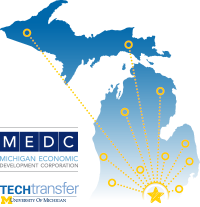
Have a hot concept in the realm of biomedical devices, diagnostics, therapeutics, or digital health/IT that would be a great candidate for commercialization?
Innovators from all schools at the University of Michigan, other institutions of higher education, non-profit research centers, and hospital systems across Michigan are eligible to submit projects for funding consideration.
The RFP for Mi-TRAC is available in Competition Space, with proposals due on Monday, September 25. Each proposal will be evaluated on the basis of scientific merit, potential health care impact and significance, the potential for commercialization, and likelihood of obtaining further support. Earlier this year, 11 different proposals were awarded in the four targeted markets of devices, diagnostics, therapeutics, and healthcare IT, and we're looking forward to growing that number. The RFP for the next Mi-Kickstart will be announced later in the fall.
Complete instructions for proposal submission can be found on the Mi-TRAC website.
Questions? Contact Bradley Martin, Ph.D., MTRAC for Life Sciences Commercialization Program Director, at 734-936-8577 or [email protected].
|

|
Research Town Hall on September 19
|

You're invited to save the date for Tuesday, September 19 as Executive Vice Dean for Research and Chief Scientific Officer, Bishr Omary, M.D., Ph.D., hosts his first Research Town Hall.
Boxed lunches will be provided at this meeting where leadership will discuss our current research climate, and the Medical School research community will be invited to offer their input.
|
Tuesday, September 19
12:00 PM - 1:00 PM
Towsley Dow Auditorium
Live streaming at NCRC Building 18, Dining Hall
Boxed lunches will be provided
|
Faculty and staff unable to travel to Towesly may login via BlueJeans
, or attend the live streaming in the
Dining Hall of Building 18 at the North Campus Research Complex. Boxed lunches will also be provided to registered attendees at the NCRC Dining Hall. To register,
email Joyce Kennedy
.
Want to suggest topics for discussion or questions? Please send them in advance to [email protected].
|

Register Now for the Translational Research Symposium
|
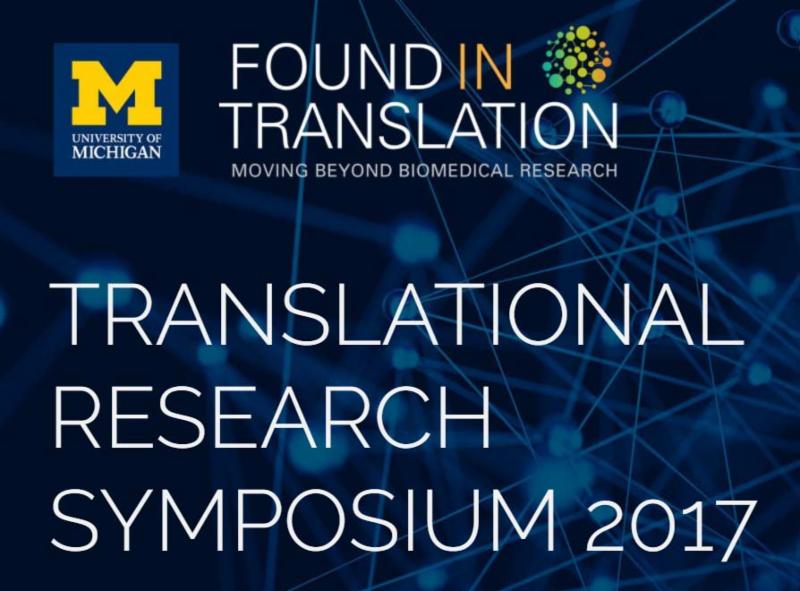
The University of Michigan is anything but lost in translation. As leaders and victors, we are redefining translational research - extending the traditional definition far beyond biomedical and health fields. Join us at this free event and we'll not only share what we've found so far, but ask you to join in shaping the future of translation - at U-M and beyond.
|
Wednesday, October 4
7:30 AM - 4:00 PM
NCRC Building 18, Dining Hall
|
The symposium will be hosted by George A. Mashour, M.D., Ph.D., Executive Director (MICHR); Executive Director, Translational Research (Office of Research); and Associate Dean For Clinical & Translational Research (Medical School), and highlights include a keynote address by Christopher P. Austin, Director, National Center for Advancing Translational Sciences, National Institutes of Health.
|

IACUC Expands Training Program to Include Continuing Education
|
The ongoing improvement of our Animal Care & Use Program relies on the continued exploration of new, meaningful approaches to building and sustaining a culture of excellence and compassion in animal care and use. Continuing Education is not only vital to our Program's success, it also actively promotes excellence in biomedical research by keeping research personnel knowledgeable of advancements in laboratory animal science, and apprised of important updates to the policies and practices of the U-M Animal Care & Use Program.
- Orientation to Animal Care & Use at the University of Michigan
- Introduction to Species
- Survival Surgery
- Hazard Containment
This does
not apply to in-person ULAM workshops.
Learn more about how and when these changes will affect you and your laboratory staff by reviewing the
full announcement on the U-M Animal Care & Use Program's website.
Additional questions about animal care and use training should be directed to the ULAM Training Core at
734-763-8039 or [email protected].
|

New Data Science Computing Platform Available to U-M Researchers
|

The new platform features a flexible, robust, and scalable database environment, and a set of data pipeline tools that can ingest and process large amounts of data from sensors, mobile devices and wearables, and other sources of streaming data.
For more information, read the full announcement.
|

Preliminary Findings from the AAALAC Site Visit
|
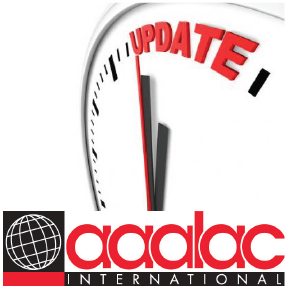
In the last 18 months, the U-M Animal Care & Use Program has made incredible growth and progress toward building a culture of sustained excellence and shared responsibility for achieving the highest animal welfare standards in research, testing, and teaching. These individual and collective efforts were well-recognized and very much appreciated by the AAALAC Site Visitors at the conclusion of U-M's mandatory site re-visit on Friday, July 14.
Although the University will not receive official notification of its accreditation status until the AAALAC Council meets later this fall, the Site Visit Team offered many insights into our Program's strengths, as well as areas for continued improvement:
- We received multiple Program commendations in the area(s) of:
- Laboratory engagement and commitment to the AAALAC accreditation process
- General cleanliness and quality of our facilities and equipment
- Level of oversight provided by the IACUC and Animal Care & Use Office
- Excellence in veterinary care and management of animal health concerns
- Ongoing, evidence-based animal enrichment methods
- Strategic communications and outreach
- Our Program was found to align with all of the standards AAALAC uses to assess and grant program accreditation
- We were offered eight Strategies for Improvement, which included topics such as safe isoflurane use, minor facility repairs, proper sanitation techniques, and aseptic surgical practices.
Shortly after the Council meets, U-M's accreditation status will be communicated to our Institutional Official, S. Jack Hu, Ph.D., who will then make a community-wide announcement.
Thank you for your continued dedication to achieving the highest animal welfare standards for all animals under your care, and for your unwavering commitment to our Program's collective success.
|

Raising the Bar for Clinical Research Staff Training
|
MICHR receives
$2.3M grant to lead national effort
|
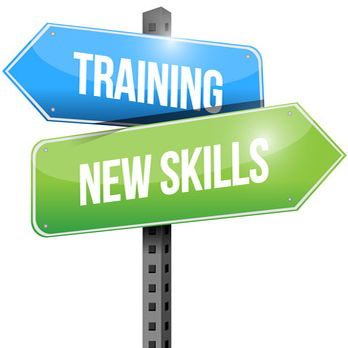
Every day at U-M and across the country, clinical trials give patients access to promising new treatments, and clinical research gives scientists important insights into the body and mind. The number of studies has grown rapidly - with 1,600 happening at U-M alone.
But amazingly, no national standard exists for how to train the staff who actually run these studies, even though they have to follow many federal regulations, interact with patients and health professionals, and act as the early warning system for problems. Many institutions have developed their own training methods and courses, but it's been hard to share them.
Now, a new effort based at U-M will create a one-stop shop for the best training approaches, and make it available to clinical research staff nationwide.
The Michigan Institute of Clinical & Health Research (MICHR) is leading the effort to identify and evaluate competency-based training for clinical and translational science researchers. Recognizing that a critical barrier to conducting effective clinical research is the lack of consistent training for study team personnel, several universities will examine training methods in a new three-year, $2.33M grant project called DIAMOND (Development, Implementation, and Assessment Of Novel training in Domain-based competencies).
Through this grant, teams from MICHR, Ohio State University, Rochester University, and Tufts University seek to address problems with the quality and efficiency of how clinical trials are carried out by examining existing training programs, categorizing them, creating assessments, and cataloging all programs, making them available to more than 50 CTSA institutions nationwide via an online portal. MICHR serves as the coordinating center for this project.
|

U-M Awarded $5.6M to Establish the Michigan Mouse Metabolic Phenotyping Center (MMPC)
|
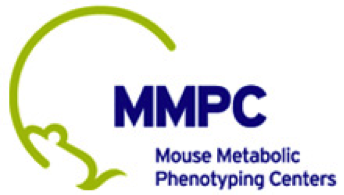
The University of Michigan has been awarded $5.6M by the National Institute of Diabetes and Digestive and Kidney Diseases (NIDDK) to establish the Michigan Mouse Metabolic Phenotyping Center (MMPC) . The center, directed by Dr. Malcolm Low, will advance medical and biological research using mouse models of diabetes, diabetic complications, obesity, and related metabolic diseases and conditions. It is comprised of four fee-for-service core laboratories that provide access to a broad range of comprehensive, state of the art, specialized phenotyping services.
The
Animal Care and Germ Free Mouse Core
, directed by Drs. Robert Sigler and Jennifer Lofgren, is the gateway for all phenotyping involving live mice; providing mouse importation, quarantine, housing, veterinary care, clinical chemistry, and histopathology services. The core also hosts a germ-free mouse facility, directed by Dr. Kathryn Eaton, which produces and distributes germ-free and gnotobiotic mouse models.
The
Metabolism, Bariatric Surgery, and Behavior Core
, directed by Drs. Malcolm Low, Nathan Qi, and Randy Seeley, performs a variety of in vivo physiological assessments encompassing glucose homeostasis, energy homeostasis, ultradian hormone secretion and behavioral measurements, and generates bariatric surgery models.
The
Microvascular Complications Core
, directed by Drs. Eva Feldman, David Antonetti, and Jeffrey Hodgin, provides a complete range of microvascular phenotyping of murine models of diabetes, obesity and metabolic disease; including validated, reproducible and standardized phenotyping of the three major microvascular complications: diabetic polyneuropathy, nephropathy, and retinopathy.
The
Microbiome Core
, directed by Drs. Vincent Young, Patrick Schloss and Thomas Schmidt, serves the specific needs of investigators who are studying the role that complex microbial communities can play in shaping the overall metabolic state of their host. The core analyzes microbiome structure in mouse models of disease and cultivates microbes to permit hypothesis testing in murine models, including germ-free mice.
For more information about our services and how to request access, please email [email protected] or visit our website.
|

Central Biorepository Launching MiCores This Summer
|
 |
|
 |
An annotated sample MiCores invoice. Click to enlarge.
|
What's next?
There is no action required!
All CBR customers have to do is check their email for a MiCores invoice at the end of the monthly billing cycle. As before, funds will automatically be transferred to the CBR via a Service Unit Billing event. That's it!
Questions about your bill or the new billing system? Contact Zachary Klug.
Get more information about MiCores and check out an annotated sample MiCores invoice here.
For additional help, contact
[email protected]
.
|

Attention Musicians: Audition for the Life Sciences Orchestra!
|
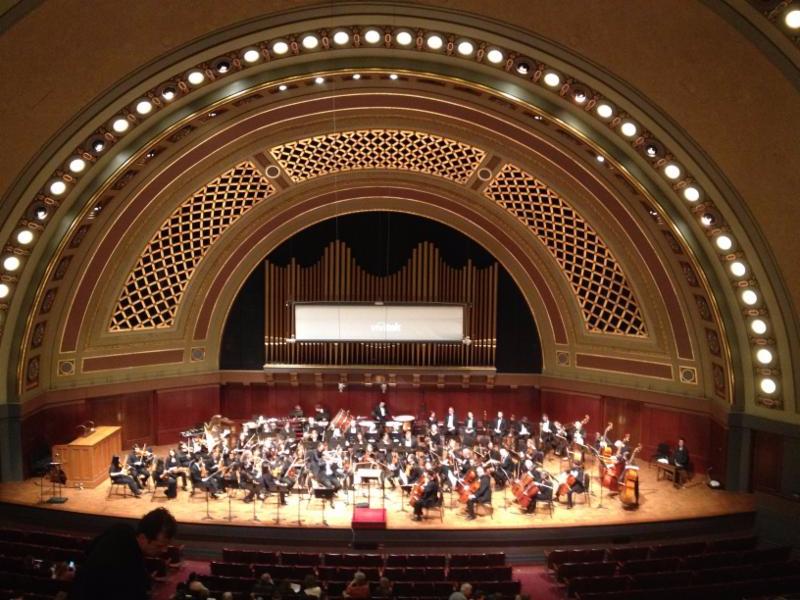
The U-M life sciences community has its own symphony orchestra, and it's about to begin its 18th year of bringing a broad range of individuals together to make music every Sunday night and perform two concerts a year.
Auditions for all orchestral instruments will be held at the U-M School of Music Moore Building on:
Sunday, September 17
11:00 AM - 5:00 PM
Monday, September 18
6:30 PM - 10:00 PM
Tuesday, September 19
6:30 PM - 10:00 PM
Information and required audition excerpts are
available online. The link to the audition spot signup sheet will be available in early September on the same site.
|

Future Featured Foundation Grants
for Biomedical Research
|

In addition to the quickly-approaching deadlines listed above, the following
opportunities are also available.
The Michigan Medicine Corporate and Foundation Relations team can assist in the funding process, including providing direct communication with the funding entity to obtain guidance on project appeal/applicability to the funder, provide examples of previously funded U-M proposals, and answer general faculty questions. For a wide range of Foundation and Corporate funding opportunities, please visit our website.
Please note: A faculty member's research administrator will serve as the liaison on all aspects of the internal application process. If you are unsure of whom to talk to, your department contact can be found here. If you pursue any grant opportunity featured in this edition of Research News, please contact your research administrator first to formulate a submission plan and timeline.
|
Award
|
Amount
|
Deadline
|
|
|
$180K
|
Sunday,
October 1
|
|
|
$300K
|
Monday,
October 2
|
|
|
Not
Specified
|
Wednesday,
November 1
|
|
|
$460K
|
Friday,
December 1
|
|
|
$450K
|
Thursday,
February 1, 2018
|
Questions about these award opportunities should be directed to Joe Piffaretti in Corporate and Foundation Relations via email or phone at 734-763-1318.
If you are interested in receiving weekly funding announcements that include opportunities such as those listed above, please contact Joe Piffaretti to be added to the faculty/staff email circulation list.
|
|
|